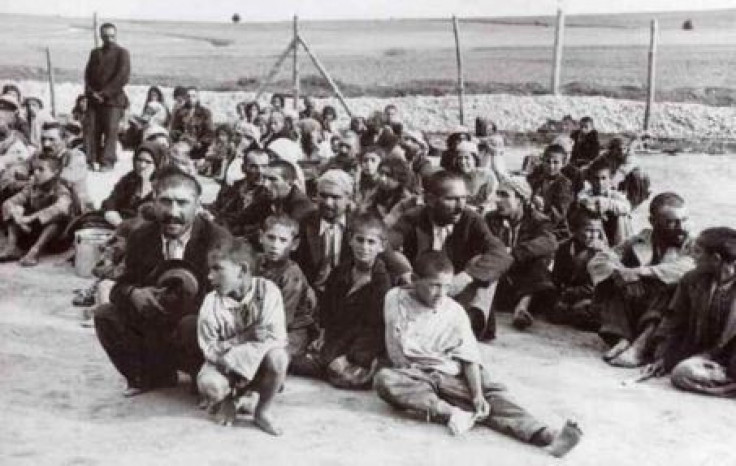Turkey’s Erdogan ‘Apologizes’ for Mass Murder of Kurds in 1930s ... Sort Of

In a rare and perhaps unprecedented admission of guilt, the leader of Turkey has officially apologized for a massacre the state carried out against minority Kurds and Alevis in the 1930s.
Prime Minister Recep Tayyip Erdogan became the first Turkish head-of-state to take responsibility for the mass murder of almost 14,000 people by the Turkish military which used aerial bombing and poison gas to crush a rebellion.
The murders in question occurred between 1936 and 1939 in Dersim in the heavily Kurdish southeastern part of the country when the local population sought to resists efforts by the state to impose its authority there. (Dersim is now called Tunceli).
Reportedly, another 11,600 people were forcibly exiled from the region.
During a televised meeting with officials of his ruling Justice and Development (AK) Party in the capital of Ankara, Erdogan stated: If there is need for an apology on behalf of the state, if there is such a practice in the books, I would apologize and I am apologizing. Dersim is the most tragic event in our recent history. It is a disaster that should now be questioned with courage.
However, Erdogan then seemed to qualify his apology by putting the blame for the killings on the principal opposition Republican People's Party (CHP) Party -- which was the only political party in Turkey during the late 1930s.
“The party that should confront this incident is not the ruling Justice and Development Party (AK Party),” he said.
“It is the CHP, which [was] behind this bloody disaster, who should face up to this incident.
Reportedly, some Kurdish officials in Turkey are skeptical of Erdogan’s apology, believing it to be part of an opportunistic war of words against the current head of CHP, Kemal Kilicdaroglu (whose family is from Tunceli).
Erdogan explicitly demanded that CHP own up to the atrocity.
Dersim is the most painful and bloody [event] among [the] tens, hundreds of disasters the CHP had caused. It is not the AK Party and the AK Party government that should face this event and apologize, but it is the CHP, he said.
Moreover, Erdogan’s apology is bound to rankle Turkish ultra-nationalists, who revere the memory of the nation’s legendary founder, Mustafa Kemal Ataturk, who was president during the Dersim offensive. In fact, Ataturk’s own adopted daughter was a fighter pilot who participated in the bombing.
Ataturk also found CHP.
However, some Turks applauded Erdogan’s apology.
Sukru Aslan, a sociologist at Istanbul’s Mimar Sinan University and a native of Dersim, told Today’s Zaman, an English language Turkish daily newspaper: “It was a first in Turkey for a prime minister to call what happened in Dersim a massacre, and say that it was not a rebellion and was planned well in advance. This forces other parties, like the CHP and the MHP [Nationalist Movement Party], to develop new polices about it.”
Erdogan’s surprising and unexpected apology comes during a particularly sensitive time between Turkey and the Kurds, given the recent wave of violence and attacks by both sides.
Prior to the latest escalation of hostility, Erdogan’s administration had attempted to improve the legal and cultural status of Kurds in the country, while at the same time cracking down hard of Kurdish militants (i.e., the PKK) who have waged an insurgency against Ankara for the nearly the past three decades.
In any case, although an official apology for the murder of Kurds is a big -- and perhaps historic -- step by Turkish authorities, there is the shadow of an even greater tragedy that has haunted the country ever since.
Turkey has steadfastly refused to take any responsibility for the mass murder of up to 1.5 million Armenians by the Ottoman Empire during World War I. Armenians have labeled the killings as “genocide,” but the Turks claim that the Armenians died because they sided with the invading Russians against the Ottomans. Turkey also asserts the number of dead was much lower, between 300,000 and 500,000.
© Copyright IBTimes 2024. All rights reserved.











